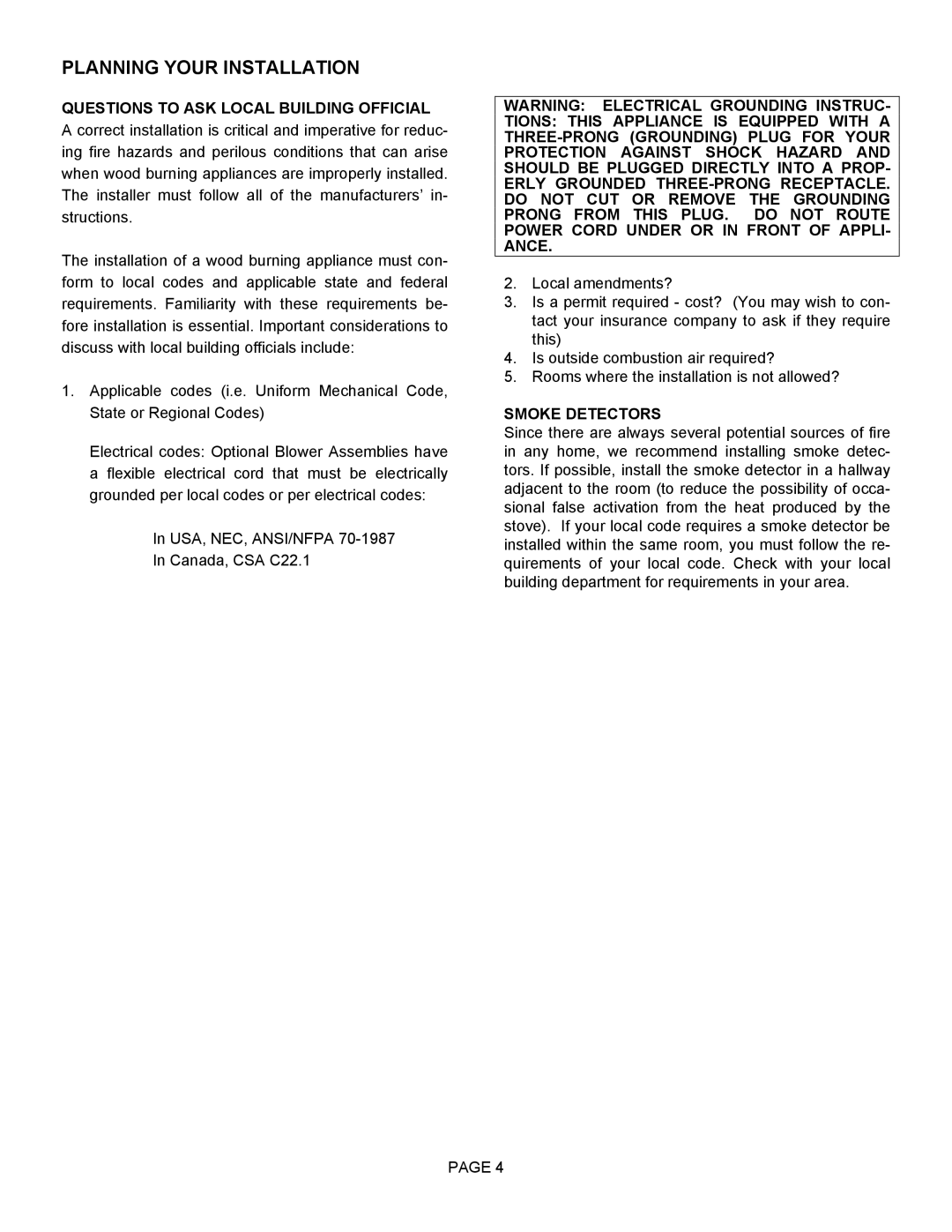
PLANNING YOUR INSTALLATION
QUESTIONS TO ASK LOCAL BUILDING OFFICIAL A correct installation is critical and imperative for reduc- ing fire hazards and perilous conditions that can arise when wood burning appliances are improperly installed. The installer must follow all of the manufacturers’ in- structions.
The installation of a wood burning appliance must con- form to local codes and applicable state and federal requirements. Familiarity with these requirements be- fore installation is essential. Important considerations to discuss with local building officials include:
1.Applicable codes (i.e. Uniform Mechanical Code, State or Regional Codes)
Electrical codes: Optional Blower Assemblies have a flexible electrical cord that must be electrically grounded per local codes or per electrical codes:
In USA, NEC, ANSI/NFPA
In Canada, CSA C22.1
WARNING: ELECTRICAL GROUNDING INSTRUC-
TIONS: THIS APPLIANCE IS EQUIPPED WITH A
2.Local amendments?
3.Is a permit required - cost? (You may wish to con- tact your insurance company to ask if they require this)
4.Is outside combustion air required?
5.Rooms where the installation is not allowed?
SMOKE DETECTORS
Since there are always several potential sources of fire in any home, we recommend installing smoke detec- tors. If possible, install the smoke detector in a hallway adjacent to the room (to reduce the possibility of occa- sional false activation from the heat produced by the stove). If your local code requires a smoke detector be installed within the same room, you must follow the re- quirements of your local code. Check with your local building department for requirements in your area.
PAGE 4
